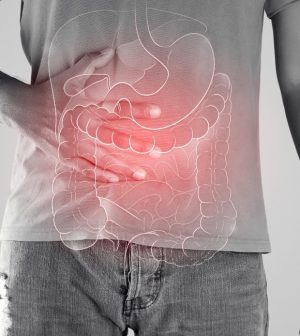- Could Your Grocery Store Meat Be Causing Recurring UTIs?
- Are You Making This Expensive Thermostat Error This Winter?
- Recognizing the Signs of Hypothyroidism
- 10 Strategies to Overcome Insomnia
- Could Artificial Sweeteners Be Aging the Brain Faster?
- Techniques for Soothing Your Nervous System
- Does the Water in Your House Smell Funny? Here’s Why
- Can a Daily Dose of Apple Cider Vinegar Actually Aid Weight Loss?
- 6 Health Beverages That Can Actually Spike Your Blood Sugar
- Treatment Options for Social Anxiety Disorder
‘Microrobot’ Pills Eased IBD in Mice, Paving Way for Human Testing

A new “microrobot” pill may help tame inflammatory bowel disease (IBD), a new study in mice suggests.
The pill significantly reduced IBD symptoms in mice and promoted the healing of damaged colon tissue without toxic side effects, researchers reported June 26 in the journal Science Robotics.
IBD occurs when immune cells turn on the gut, creating excessive levels of inflammation-causing chemicals called cytokines, researchers said. The microbots are designed to keep those cytokine levels in check, researchers explained.
The microbots consist of inflammation-fighting nanoparticles attached to the surface of green algae cells, researchers explained.
The algae enables the nanoparticles to swim around inside the gut. The nanoparticles absorb and neutralize cytokines as they come across them.
This breaks the cycle of inflammation that triggers IBD, giving damaged gut tissue a chance to heal, researchers said.
“The beauty of this approach is that it’s drug-free — we just leverage the natural cell membrane to absorb and neutralize pro-inflammatory cytokines,” said lead researcher Liangfang Zhang, a professor of chemical and nano engineering at the University of California, San Diego (UCSD).
The microrobots are packed inside a liquid capsule that’s resistant to stomach acid but melts upon reaching the neutral pH of the colon, researchers explained. This makes sure they get where they’re needed.
“We can direct the microrobots to the diseased location without affecting other organs,” said lead researcher Joseph Wang, a professor of chemical and nano engineering at the UCSD. “In this way, we can minimize toxicity.”
When fed to mice, the microrobot capsules reduced fecal bleeding, improved stool consistency, reversed weight loss associated with IBD and reduced inflammation in the colon, researchers said.
However, it should be noted that the research is early and much animal research does not pan out in humans.
Earlier this month, a report in the journal Science Advances from the same team showed that microrobot technology can be used to deliver chemotherapy directly to lung cancer cells.
“This is a platform technology that can actively and efficiently deliver therapeutics throughout the entire lung tissue to combat different types of deadly diseases in the lungs,” Zhang said of that application.
More information
The U.S. Centers for Disease Control and Prevention has more about IBD.
SOURCE: University of California, San Diego, news release, June 26, 2024
Source: HealthDay
Copyright © 2026 HealthDay. All rights reserved.










